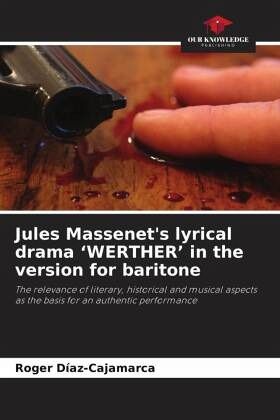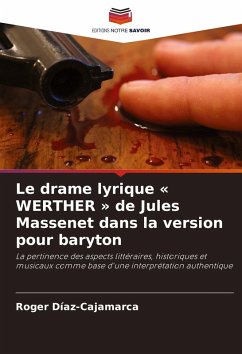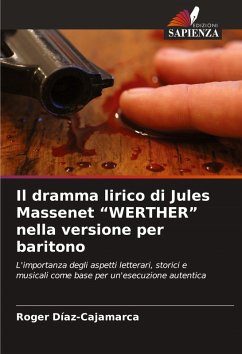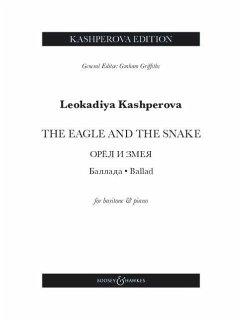
Jules Massenet's lyrical drama 'WERTHER' in the version for baritone
The relevance of literary, historical and musical aspects as the basis for an authentic performance
Versandkostenfrei!
Versandfertig in 6-10 Tagen
18,99 €
inkl. MwSt.

PAYBACK Punkte
9 °P sammeln!
In August 1885, Jules Massenet and Georges Hartmann saw Wagner's Parsifal in Bayreuth. They then visited various German cities, including Wetzlar, where Goethe had written his novel The Sorrows of Young Werther. Massenet subsequently received a French translation of the novel from Hartmann and was so enthusiastic that he immediately decided to compose a new opera based on Goethe's work. The aim of this paper is to show how important it is to know an opera well in order to be able to work towards an informed, structured and creative performance. It is essential to know and reflect on the litera...
In August 1885, Jules Massenet and Georges Hartmann saw Wagner's Parsifal in Bayreuth. They then visited various German cities, including Wetzlar, where Goethe had written his novel The Sorrows of Young Werther. Massenet subsequently received a French translation of the novel from Hartmann and was so enthusiastic that he immediately decided to compose a new opera based on Goethe's work. The aim of this paper is to show how important it is to know an opera well in order to be able to work towards an informed, structured and creative performance. It is essential to know and reflect on the literary and historical aspects, to seek information about the composer and to understand the style of the music. The following describes the preparatory work that must be done to ensure an authentic performance. It also discusses how rehearsals can best be organised. At the end of the paper, challenges are described and solutions are proposed to support conductors in future opera productions.












